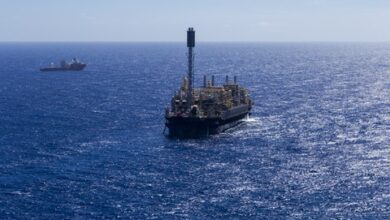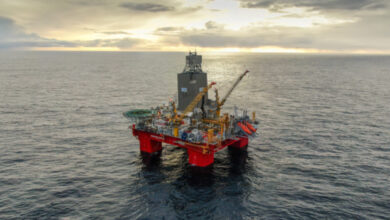Regulator: Industry must not get complacent about UKCS well control
Among the myriad results of the study, it was found that the total number of kicks over the last 10 years were evenly spread among the Southern North Sea, North North Sea, Central North Sea and Moray Firth. But when the data is corrected for the level of rig activity, it becomes evident that the southern region had the highest kick frequency.
This was in line with the results from dissecting incidents by rig type – it was found that jackups had the highest frequency of kicks experienced. Almost all wells in the Southern North Sea, exclusively a gas province, are drilled using jackups.
For development wells and for exploration and appraisal wells, the trends were markedly different. For the first category, the Northern North Sea had the highest number of reported kicks during this period, with a significant portion of them occuring during workover operations.
Mr Dobson explained that a major factor for this is because reservoirs in the northern region are typically Jurassic sandstone. Faulting is common, often with discrete fault blocks with little or no communication between them. The sands are also deltaic, and reservoir sands are frequently inter-bedded with shales, also with little to no communication. A significant number of kicks during workover occur because of a loss of kill fluid to adjacent depleted sands with the loss of head allowing a less depleted sand to flow.
For exploration and appraisal well kicks, the majority were concentrated in the Central North Sea and Southern North Sea regions. In the Central region particularly, this is where a majority of the UK’s high-pressure, high-temperature wells have been drilled. Many kicks since 2006 were due to encountering higher than expected formation pressures or by swabbing, mostly in HPHT wells.
Overall, the study was able to help the regulator spot trends and showed that the majority of incidents were “benign,” caused by complex geological factors. But Mr Dobson pointed out that human error continues to be a factor in well incidents: “We must avoid complacency.”
SPE/IADC 119942, “Kicks in Offshore UK Wells – Where Are They Happening, And Why?” by JD Dobson, Health & Safety Executive, was presented at the 2009 SPE/IADC Drilling Conference, 17-19 March, Amsterdam.




